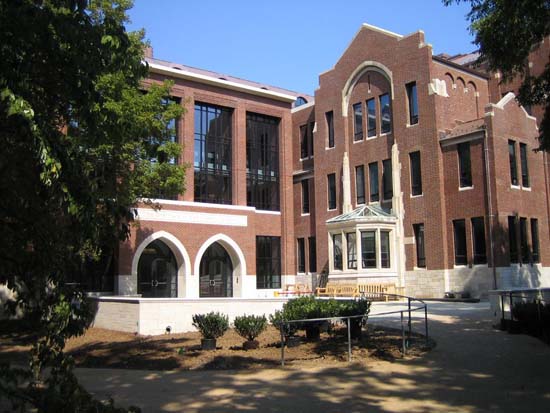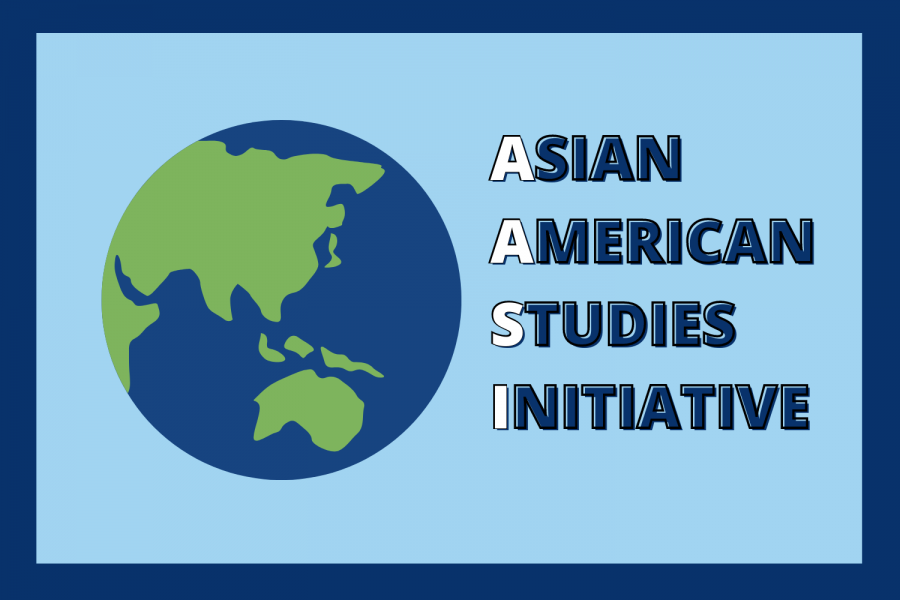
In a recent statement issued by the Office of the Chancellor, Chancellor Daniel Diermeier, Provost Susan Wente and Vice Chancellor for Equity, Diversity and Inclusion André Churchwell shared the university’s plan of action in addressing and combating racism and racial injustice at Vanderbilt. As highlighted in the statement, efforts to enhance and diversify the school’s academic community are crucial to systemic change and reform. In fact, dedicating more attention to the academic disciplines that study ethnicity, identity and power in the United States is an obvious priority. These historically neglected disciplines—African American and Diaspora Studies, Latinx Studies, Asian Studies, Women and Gender Studies and etc.—are indispensable from the education that Vanderbilt aims to provide.
The presence of these disciplines is a crucial initiative in understanding the thorough, truthful and complex history of the United States and of global race and identity. Amidst the global movement against systemic racism and injustice, elite predominantly-white colleges are once again hopping on the bandwagon to declare their commitment to diversity and inclusion. To solidify such an effort beyond their statements, universities like Vanderbilt ought to bolster support for departments that study and amplify the unheard voices—public and private—of the minority students who make up an essential part of our community and the larger marginalized groups inseparable from our society. As places of learning and education, universities and its academic environment are the starting point to study and address systemic racism through methodological research and dialogue. While Vanderbilt has robust programs in studying different minorities and excellent faculty whose work is reshaping the white/west-dominated curriculums, more work could be done.
One of the direct ways to support the study of race and perpetuate change in the academic environment is to hire more faculty. In a March interview with The Hustler, Professor Claudine Taaffe, Director of Undergraduate Studies for African American and Diaspora Studies, shared that one of the most urgent needs of the AADS department is to increase the number of teaching faculty to more adequately engage with the education that the department aims to provide for all of Vanderbilt’s students. According to Taaffe, AADS classes at the introductory level are often out of open spaces for eager students placed on the waiting list despite the department’s effort to hold multiple sessions. At the same time, the faculty are also striving to create new courses each year that are relevant and interdisciplinary, such as classes on the 2020 Fall catalog like “Curating Black Lives: Imagination, Art, and Global Social Change” and “African American Literature” that greatly enrich the current curriculum but cannot exist without teaching faculty. She also added that the number of recent graduates with a major in AADS—ranging from six to 14 per year—exceeds the average of two majors per teaching faculty among the other departments.
Despite the popularity of AADS classes and the relatively large number of majors/minors, those who choose to earn a degree in fields that study race and minority still make up a rather small percentage of all the degrees conferred. According to the 2019-20 Common Data Set of Vanderbilt University, of all undergraduate degrees earned between July 1, 2018, and June 30, 2019, a mere 1.58 percent had majors in the Area, Ethnic and Gender studies category. The fact that only a handful of students major in ethnic and minority studies each year does not in any way speak for the utility or worth of these disciplines—this number is precisely the token of institutional marginalization. At Vanderbilt and other similar universities, the pre-professional and utilitarian culture of earning a major that gains direct access to high-paying career options marginalizes majors that may not seem attractive to certain employers.
While it is undeniable that the job market for undergraduates demands backgrounds in STEM-subjects and those focusing on quantitative skills, subjects in ethnic studies are equally beneficial to the long-term intellectual growth—not simply the economic productivity—of each student through their emphasis on critical thinking and research. As Martha Nussbaum warns in her book Not for Profit — Why Democracy Needs the Humanities, focusing solely on quantitative, profitable skills without an education in the humanities leads to the inability to criticize the authority, to empathize with the marginalized, and to understand complex societal issues. In other words, prioritizing “utility” and devaluing subjects not lucrative enough create an exclusive and homogenous class of elites that reinforces itself through perpetuating economic productivity as the goal of college education when, in reality, the two are not mutually exclusive. An “elite” college education is not entirely about catering to the job market, and the urgency to support ethnic studies simply cannot be clearer because the systemic issues of racism, injustice, and oppression are still wildly and pervasively present in our world.
Elite institutions have particular responsibility to support our ethnic studies programs because the majority of students and alumni are, or become, a privileged group that—with more agency and voice in the society—is able to change and reform the systemic issues but is also capable of simply reinforcing the status quo.
The hiring of more faculty with institutional support could change the marginalized status of ethnic and minority studies. They will be able to provide sufficient support for more potential majors and minors through advising and teaching. Their amplified presence will also help the department deliver a larger number and variety of courses and programs crucial to the entire student body as it is evident that those who currently choose to—and are able to—take classes in these disciplines only make up a small portion of the student population. By doing so, departments and programs like AADS are also key to the active effort of redefining the role and purpose of higher education at elite predominantly-white institutions—their presence challenges the increasingly utilitarian culture that does not do enough to change our society for the better.
To hire more faculty is a foundational first step. Without faculty, classes and programs that study minorities, it is difficult for students to learn about activism, witness historical challenges to the status quo and make sense and meaning of their human experiences linked to parts of their ethnicity, race and identity. The presence of these programs and departments immeasurably expands and diversifies academic perspectives and student experiences; they are the foundations of an education that is devoted to truth—not in its singularity, but in its complexity and multiplicity. To deny such truths and to marginalize the efforts to understand them is to solidify oppression and injustice.
As Taaffe said at the end of our interview, “we are living in an incredibly diverse world based upon even more issues than ethnicity—sexuality, gender, class. If you don’t have institutions or academic departments that reflect that truth, then what are you really doing around education?”


PeterTx52 • Aug 4, 2020 at 8:33 pm CDT
better to get a solid grounding in history. the studies you say that are neglected are actually investigated in graduate school
better to do African history, Asian history, Latin American history. get a solid grounding in those then you can dig into Diaspora (Jewish, African and any other)
taking a narrow focus as an undergraduate is not a good idea